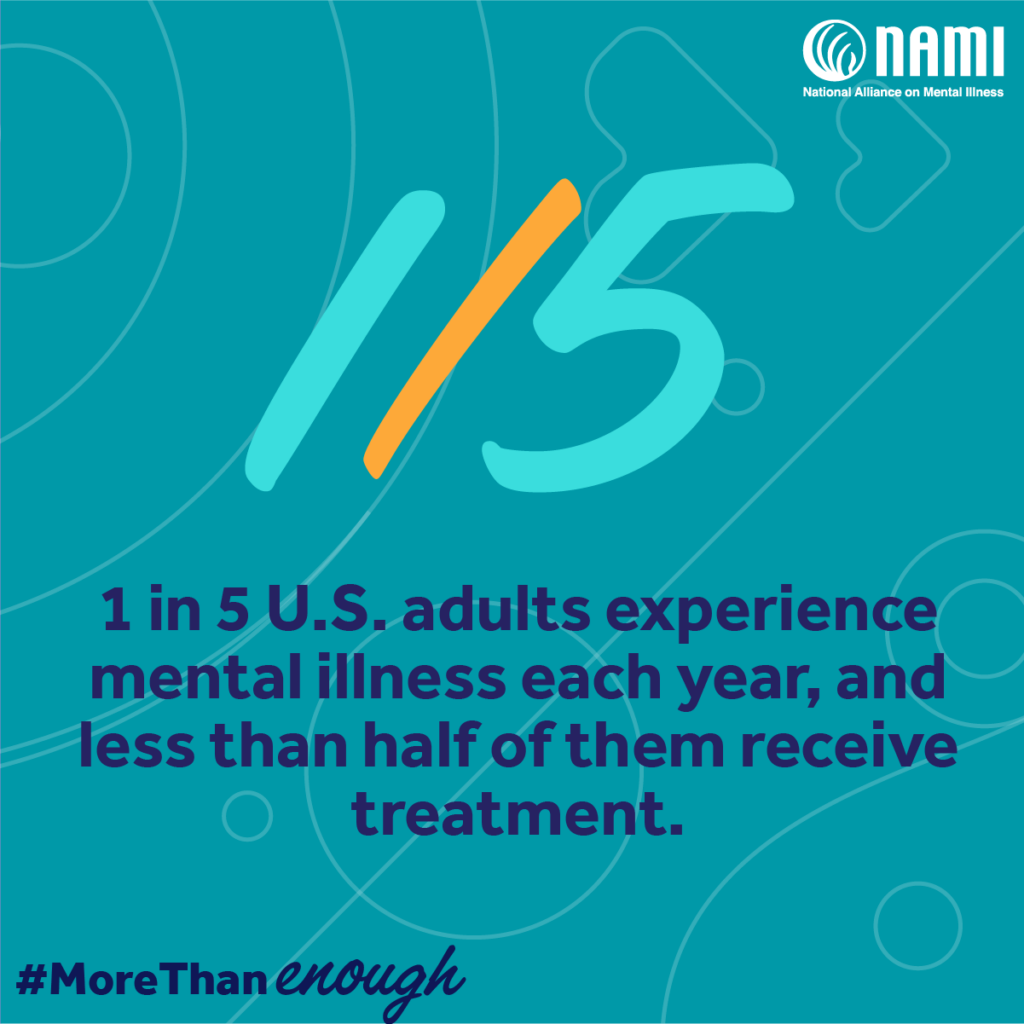This content is also available in:
Español (Spanish)
May is here! And while many around the country mark the month with buzz about the end of the school year, it also holds significance as a month we take the time to address a topic that deeply impacts the lives of millions of people around the country (and world) – Mental Health Month.
Mental Health and vision changes are two complex issues that significantly impact a person’s life in their own right. While a wealth of information is available on each topic, there is less discussion on the intersection of the two. As a major – and usually unexpected – life change, vision changes can exacerbate existing mental health issues or even trigger the development of new ones. Maybe you already struggle with anxiety or depression and find your symptoms worsening. Or maybe you have no history of mental health concerns. Still, you have newly developed, and frankly unwelcome, experience with anxiety, depression, or other mental health changes since your vision changes. Whatever camp you may fall into, you’re in a safe place, friend. Hopefully, you will find some solidarity, comfort, and a sense of normalcy as you read this blog and the other resources available through APH VisionAware.
Adjustment with New Vision Loss
A new diagnosis and experience of vision changes can come as a shock, especially when you or your loved one has lived most of your life with typical vision. Many questions and fears may arise – feelings of grief, anger, uncertainty, and depression may feel overwhelming. You might wonder how you will perform daily tasks that you once completed with the ease of “autopilot” before you experienced a vision change.
 1 in 5 Adults in the US Experience Mental Health Issues
1 in 5 Adults in the US Experience Mental Health Issues
This uncertainty likely affects your social life and independence, which can contribute even more to feelings of isolation and anxiety. While unpleasant, to say the least, it’s important to call out the elephant in the room and identify your feelings. It’s even more important to know that you are not alone! These reactions, and many others, are a completely normal part of adjusting to vision changes. It’s also important to note that there are many resources for you here and locally to help you navigate these uncertain waters and help you regain your footing, so to speak, on stable ground.
Adjustment with Progressive Loss
Maybe you are not new to the world of an eye condition and have already learned strategies and skills to tackle life independently. The challenge for you may be that your vision is unstable, and you possibly have a diagnosis of a condition known to cause progressive vision loss. This creates a unique challenge—adjusting practical daily living skills to accommodate your vision changes.
New vision changes may also come with new waves of mental health struggles and coping with these changes. The fear of the unknown – not just the unknown of what blindness will be like, but also the unknown timing. Anxiety, depression, and other issues may be all-to-familiar “friends” you encounter daily as you work to wrap your mind around each new change you experience.
You’re Not Alone – Reach Out for Help!
- Be patient and understanding with yourself or your loved one who has experienced (or is experiencing progressive) vision loss. Adjustment to the “new normal” can be a slow and challenging process, but there is hope, friend!
- Seek help from a qualified mental health professional, whether virtual or in-person, such as a counselor or therapist. These professionals can help you talk openly about and work through your emotions and help you develop coping strategies to manage mental health symptoms.
- Talk to your doctors. Your primary care physician can help you determine if supportive medication may be a helpful tool in stabilizing your mental health and giving you back control of your thoughts and emotions.
- Know there are many ways to enjoy the activities you once participated in before low vision or blindness! You may need to develop new techniques in your approach. Find local professionals and instructors familiar with blindness and low vision who can teach you strategies for adapting to your new lifestyle.
- Find online resources to learn more about how others who are blind or low vision cope with mental health issues. Here are some places to start: |
Mental health and vision changes are complex issues that can significantly impact your life. In recognizing the impact these two very big topics hold, especially when they overlap, you can hopefully feel empowered to reach out for help or to offer compassion to a loved one and navigate the process of managing mental health symptoms, all while discovering the possibilities available in a new way of life.